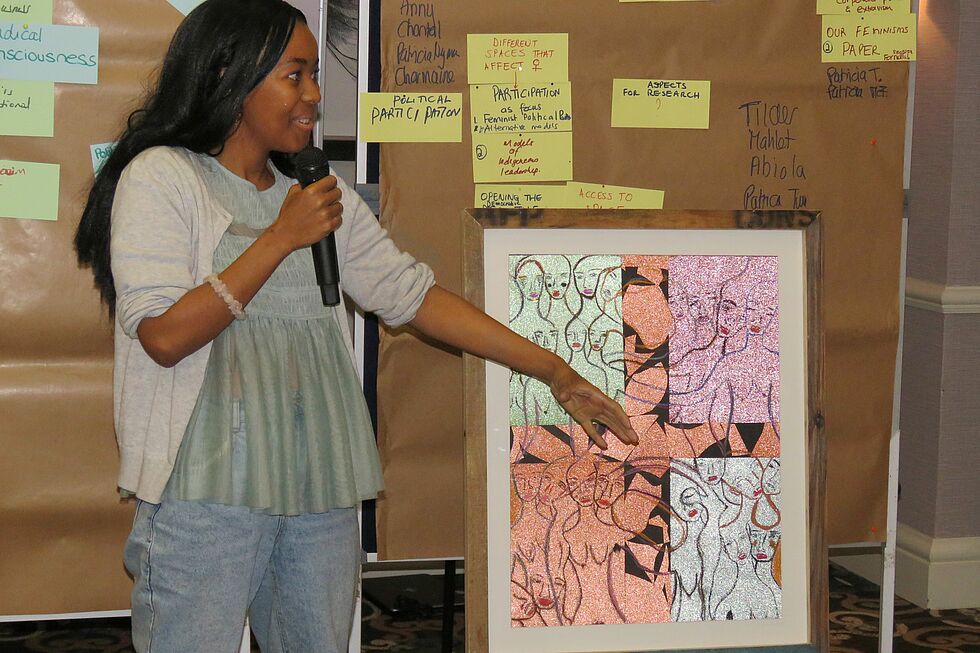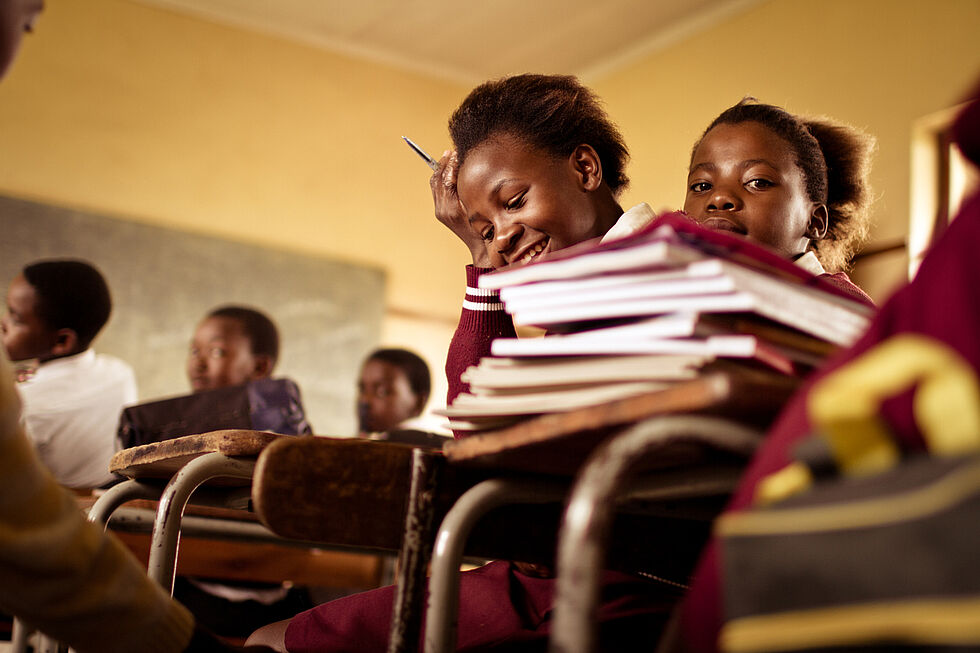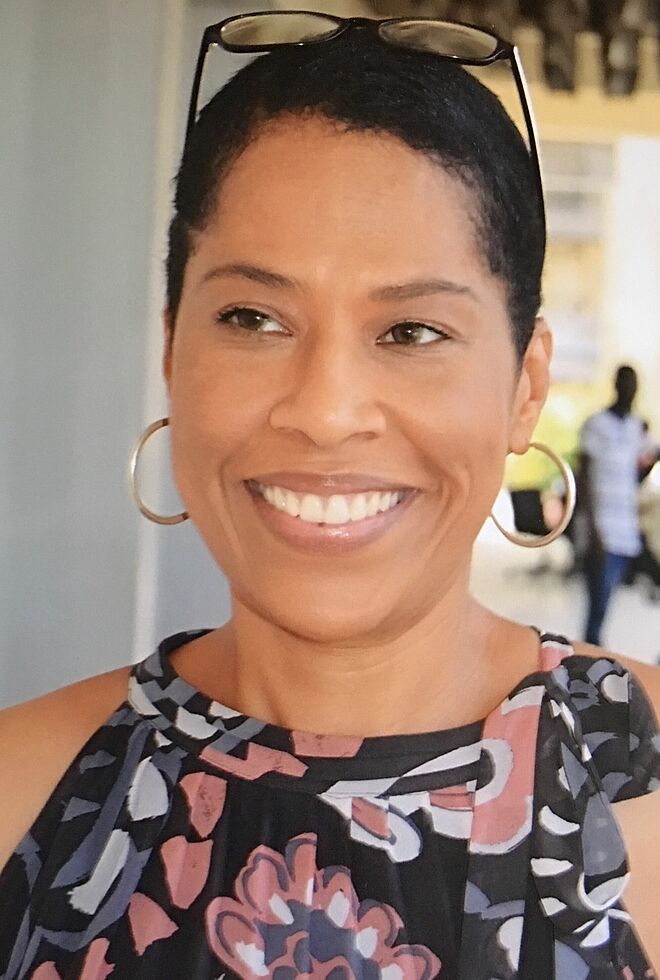How feminism can renew progressive political thought in Africa
Feminist thinking and critique of current patterns of development and democratic processes have the potential to provoke a renewal of progressive ideas in the political arena.
Friedrich-Ebert-Stiftung (FES) has been highlighting this position throughout its work on gender equality in Africa. It is now bringing that position to bear by supporting the formation of a reflection group on feminism and new ideas for progressive politics at an inception workshop in Maputo, Mozambique, from 28-30 November. The efforts are part of global project by FES on political feminism, already taking place in other parts of the world where FES works.
On the eve of the inception workshop, FES Connect met with Tina Hennecken Andrade, director of FES Mozambique and regional coordinator of the political feminism project in Sub-Saharan Africa, to talk about feminist politics, and the potential it holds to transform our societies and make social justice a reality.
Tina, you are the regional coordinator of the political feminism project in Sub-Saharan Africa. What brought you to the project and what informs your feminist stance?
Tina Hennecken Andrade: Social justice is unthinkable without gender justice. In my former job at the FES office in São Paulo I worked closely with the Brazilian trade union movement. I saw how strong alliances between social (feminist) movements, trade unions and progressive political parties can give rise to policy innovation and the way democracy works.
Feminist actors have been decisive in bringing a fresh perspective on social inequalities to the political agenda of Southern American countries during the recent period of left-leaning governments. Discussions have gone far beyond simple quotas, to question the neoliberal idea of the market as performance-based meritocracy, the distribution of unpaid or badly paid care work, and look at the self-reinforcing discriminations on the bases of race, sex and class.
We wanted to understand what the important issues and challenges for feminist movements currently are, and where we as FES could possibly make a useful contribution to those struggles.
Feminist politics is not just about minds, but also about collectivity and spirit. Anybody can see this in the photographs from the Women’s March against President Trump’s sexist, misogynist and offensive statements or has participated in a demonstration of the drumming performances of the Marcha Mundial das Mulheres (World Women’s March). When thousands of women gather to mobilize chanting and drumming for their causes, the political statement is just breathtakingly powerful.
With regards to feminist critique and feminist movements in Africa, what is the current situation? What actors have emerged and what are they demanding?
THA: Africa is a continent with very diverse societies and political realities, so it is difficult to say. But after a year of working in Maputo, I can clearly see there are very courageous feminist voices in different countries, who speak up against gender-based violence, injustices, bad governance and missed chances for an autonomous national development in the interest of the majority of the people. Most of the movements organize nationally around specific causes like violence, rape or economic rights. But some networks also try to connect debates and advocacy work between sub-regions. This is not an easy task, given all the differences in language, religious, cultural and political traditions.
From HIV to violence to empowerment and back to premature marriage. African women are portrayed as poor and helpless, not as political subjects. […] The re-politicization of gender work is therefore top of the wish list for African feminist activists.
On the other side, Africa has been probably the continent where international aid agencies most impact the political agenda. Many feminist organisations lament the “hijacking” and de-politicization of the gender concept by the development industry. What was once a transformative feminist tool to deconstruct and question oppression, has suddenly become the single answer to every possible problem. Women NGOs have mushroomed to attend the changing agendas of donors. From HIV to violence to empowerment and back to premature marriage. African women are portrayed as poor and helpless, not as political subjects. Badly applied gender policies often lead to weak affirmative action for women and make the really important discourses about power relations disappear. The re-politicization of gender work is therefore top of the wish list for African feminist activists.
In October 2016 FES Mozambique organized the first workshop on feminist politics and the re-politicization of gender work. What were the main results of this meeting?
THA: We started our work on political feminism with a brainstorming workshop. Together with our partners Women´s Forum (Forum Mulher) and the World March of Women (Marcha Mundial das Mulheres), we brought 50 women from different parts of Africa together. We wanted to understand what the important issues and challenges for feminist movements currently are, and where we as FES could possibly make a useful contribution to those struggles.
The debates were really instructive. I learned how difficult the continued attempts to change masculine mindsets really are on the ground. I was shocked by some of the offences and attacks feminists still face for defending ideas different from hetero-normativity and traditional role models. This is really not a struggle for the faint of heart!
One interesting result of the discussion was the much-mentioned general difficulty to build alliances with non-feminist social movements, and even more, with the traditional political mass movements. I think, that is where our foundation’s network could be of good use. We have excellent working relations with workers parties, trade unions, progressive academics and social activists around the globe. Social change is about perceiving the benefit of changing your behaviour.
Only if political actors get access to positive experiences of democratizing states, political parties and trade unions, might they reconsider their power politics. And only if social pressure groups refine their strategies in discussion with others, will they have the persistence and strength to hold politics accountable and choreograph a structural renewal.
What is the way forward for the political feminism project in Sub-Saharan Africa, how is FES planning to engage?
THA:The details of the way forward will be decided at the first "Feminist Idea Laboratory", to be held in Maputo at the end of November.
I feel that feminist thinking can be a trigger for the renewal of progressive political thought, not just on the African continent. Feminist critique is inspired by the fight against inequalities, and to claim back human dignity and social justice. These values should also be the very basis of progressive political movements and workers’ organizations.
The goal of a feminist reflection and action group should be to go beyond the analysis of the failures of current models for development and democratic participation, but what would be the alternative, the practical utopia?
If my feminist sisters agree, I would like to put forward a feminist reflection and action group. The goal should be to go beyond the analysis of the failures of current models for development and democratic participation. Here we already have important contributions provided through a feminist lens. But what would be the alternative, the practical utopia? Developing messages, puzzle parts of a positive picture, can lead political parties to reflect on their own position towards development, social inclusion and inequalities. That would be in my opinion a very good first step for change.
And we have to find new ways to sensitize society to the issues of gender and social justice. Simple messages such as “you shouldn’t beat your wife” or “you should pay your nanny a decent salary” are not enough. I’m really looking forward to the discussion with this group of strong women and to seeing how we could make use of new technologies, arts and arguments to plant some radical new and innovative ideas. ###
For more information on the regional work by FES on gender equality and the political feminism project in Sub-Saharan Africa, contact Tina Hennecken Andrade, regional coordinator for gender work and director of FES Mozambique.
About FES Connect
Connecting people, in the spirit of social democracy, we source and share content in English from the German and international network of the Friedrich-Ebert-Stiftung.



